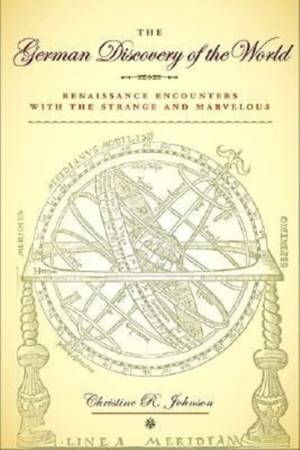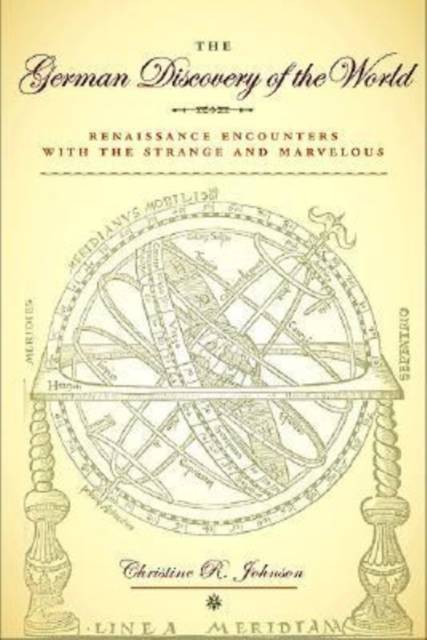
- Retrait gratuit dans votre magasin Club
- 7.000.000 titres dans notre catalogue
- Payer en toute sécurité
- Toujours un magasin près de chez vous
- Retrait gratuit dans votre magasin Club
- 7.000.0000 titres dans notre catalogue
- Payer en toute sécurité
- Toujours un magasin près de chez vous
The German Discovery of the World
Renaissance Encounters with the Strange and Marvelous
Christine R JohnsonDescription
Current historiography suggests that European nations regarded the New World as an inassimilable "other" that posed fundamental challenges to the accepted ideas of Renaissance culture. The German Discovery of the World presents a new interpretation that emphasizes the ways in which the new lands and peoples in Africa, Asia, and the Americas were imagined as comprehensible and familiar. In chapters dedicated to travel narratives, cosmography, commerce, and medical botany, Johnson examines how existing ideas and methods were deployed to make German commentators experts in the overseas world, and how this incorporation established the discoveries as new and important intellectual, commercial, and scientific developments.
Written in an engaging and accessible style, this book brings to light the dynamic world of the German Renaissance, in which humanists, cartographers, reformers, politicians, botanists, and merchants appropriated the Portuguese and Spanish expeditions to the East and West Indies for their own purposes and, in so doing, reshaped their world.
Studies in Early Modern German History
Spécifications
Parties prenantes
- Auteur(s) :
- Editeur:
Contenu
- Nombre de pages :
- 320
- Langue:
- Anglais
- Collection :
Caractéristiques
- EAN:
- 9780813927121
- Date de parution :
- 01-06-08
- Format:
- Livre relié
- Format numérique:
- Genaaid
- Dimensions :
- 163 mm x 228 mm
- Poids :
- 580 g

Les avis
Nous publions uniquement les avis qui respectent les conditions requises. Consultez nos conditions pour les avis.






